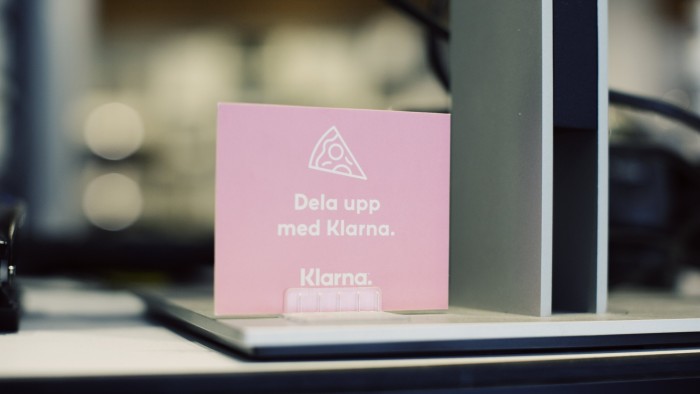Unlock the Editor’s Digest for free
Roula Khalaf, Editor of the FT, selects her favourite stories in this weekly newsletter.
Klarna’s net loss more than doubled in the first quarter as more consumers failed to repay loans from the Swedish “buy now, pay later” lender as concerns rose about the financial health of US consumers.
The fintech, which offers interest-free consumer loans to allow customers to make retail purchases, on Monday reported a net loss of $99mn for the three months to March, up from $47mn a year earlier.
The company, which makes money by charging fees to merchants and to consumers who fail to repay on time, said its customer credit losses had risen to $136mn, a 17 per cent year-on-year increase.
The increased failure to repay comes on the back of gloomy economic sentiment in the US, where a closely watched measure of consumers’ confidence last week fell to its second-lowest level on record. US President Donald Trump’s trade war has driven expectations of higher inflation.
Klarna’s results come weeks after the Swedish group was forced to pause its plan for a long-awaited stock market listing in New York as Trump’s sweeping tariffs announcements upended markets.
Klarna has focused on growing aggressively in the US in recent years, signing partnerships with merchants including DoorDash, Walmart and eBay. The push into America has raised concerns about the group’s vulnerability to a US recession.
Klarna said it was “closely monitoring changes in the macroeconomic environment” and “remains well-positioned to adapt swiftly if required”.
It said the short duration of its loans — 83 per cent of its loan book refreshes within three months — allowed it “to respond rapidly to evolving market conditions”.
Klarna’s credit loss rate as a percentage of its total payment volumes remains relatively low at 0.54 per cent, up from 0.51 per cent a year ago.
Revenues in the first quarter rose 13 per cent year-on-year to $701mn as the company counted 99mn active customers.
Klarna, which presented Monday’s earnings via an AI-generated avatar of its chief executive, has bet heavily on artificial intelligence and has said the technology helps to cut costs.
The group reduced its total headcount by 39 per cent in the past two years, while its customer service costs were down 12 per cent in the first quarter compared with the same period a year earlier.
The company is also battling an increase in funding costs, which have risen 15 per cent year-on-year to $130mn.




